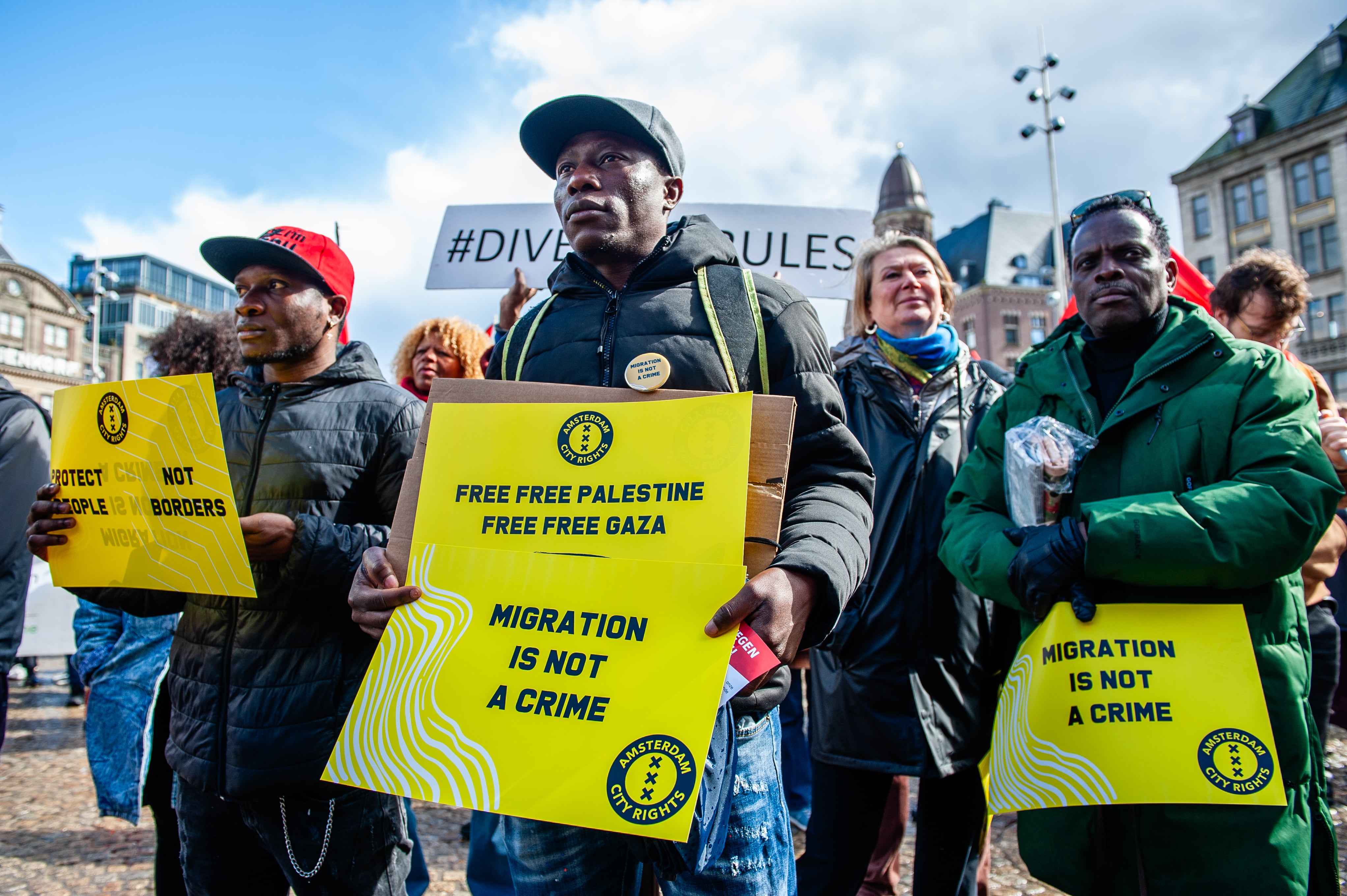
The Government of the Netherlands, led by the extreme right, presented this Friday a regulation with which it aims to create the strictest possible immigration policy in the country. The Executive intends to tighten the current asylum rules to stop the flow of applicants, although ultimately has ruled out using the Emergency lawwhich allows Parliament to be left out of decisions. He was the main promise of the Party for Freedom (PVV), of the ultra leader Geert Wilders, whose formation is the majority in the current coalition composed of four right-wing groups. The bill contemplates abolishing indefinite asylum permits and family reunification for migrants with adult children. To stop irregular arrivalsborders will be controlled starting at the end of November, and Syrians are planned to be returned to areas of their country considered safe.
The current Executive has been in power for almost five months and the agreement, which will be reflected in a law, has avoided a crisis between the partners that even threatened their survival. In the Netherlands, the finally scrapped emergency law serves to address threats to a vital interest that cannot be prevented with the help of normal legislation. Had this special legislation been invoked, the Government could have applied the new immigration rules without needing to request Parliament’s approval in advance. Yet, Dick Schoof, the Prime Ministerrepeated this Friday that the Netherlands “faces an asylum crisis” and that the current system “is unsustainable because the reception centers are saturated and some asylum seekers cause inconvenience.”
Although the new law requires the approval of Congress and the Senate, Its measures are much more restrictive than the current ones. In addition to the elimination of the indefinite asylum permit, the temporary asylum permit is reduced to three years – instead of five. Municipalities will no longer be obliged to provide accommodation for these people, as is the case now. The rule that until now imposes a proportionate distribution of claimants between territories will be repealed. Instead, a series of “simple transitional facilities” will be offered as accommodation.
Along with adult children, de facto couples will not be eligible for family reunification either. To increase expulsions, it is intended to declare safe some parts of Syriaa situation that the Ministry of Foreign Affairs is now evaluating. Syrians with a temporary residence permit may also be returned and those leaving from places considered safe will not be accepted. People of any origin who have previously sought asylum elsewhere will be returned there. There will be between 50 and 100 additional cells for the detention of those who have exhausted all legal remedies, or for undocumented immigrants. At the same time, those who have been convicted by the courts will be allowed to be declared unfit to live in the Netherlands. This would facilitate a possible expulsion. The measures also include limiting the annual number of refugees received through the United Nations to 200 – now it is 500 –.
On January 1, 2024, there were around 132,000 people recognized as refugees in the Netherlands, excluding those from Ukraine. They had fled due to war or persecution and requested asylum. The majority come from Syria and, later, from Eritrea, Afghanistan, Iran, Turkey, Yemen, Somalia and Iraq, according to data from the Dutch branch of the United Nations High Commissioner for Refugees (UNHCR). In 2023, the first asylum request was presented by 38,377 people (1,390 more repeated the process). Another 10,125 traveled following their relatives, within the framework of reunification. “The Government says that refugees work, but for that you have to speak the language and have a place to live. If you take everything away from them, they won’t make it,” declared Fran Candel, head of Vluchtelingenwerk Nederland (Council for Refugees), the organization that has supported them since their arrival in the country.
The agreement has not been easy to achieve and reflects the uniqueness of this Government. Although the four leaders of the parties in power do not hold positions in the Council of Ministers, they have been the ones who have negotiated the terms of the law that will be presented by the Ministry of Asylum and Migration. This Wednesday, Geert Wilders agreed with New Social Contract, another of the coalition formations, to forget about the Emergency law in exchange for agreeing to other measures to turn the Netherlands into a less attractive destination for refuge. That same day, both summoned the heads of the Peasant-Citizen Movement (BBB) and the Popular Party for Freedom and Democracy (VVD), the other part of the quartet in power. The meetings have been led by Prime Minister Schoof, although Wilders has been very active on his X account, somewhat stealing the spotlight.
This September, the Minister of Asylum and Migration, Marjolein Faber, announced that he wanted to declare an asylum crisis in order to be able to use the Emergency Law and use exceptional procedures. Faber, a member of the PVV, risked clashing with the rule of law to show his party’s commitment to stopping refuge, promising “the strictest asylum law to date.” Wilders, for his part, has maintained all these months that the only option was to declare an emergency. The pressure from the NSC and the legal obstacles that loomed have served to ensure that both Congress and the Senate must decide beforehand. The path of the new rule will depend on the amendments and timing of both Chambers.

